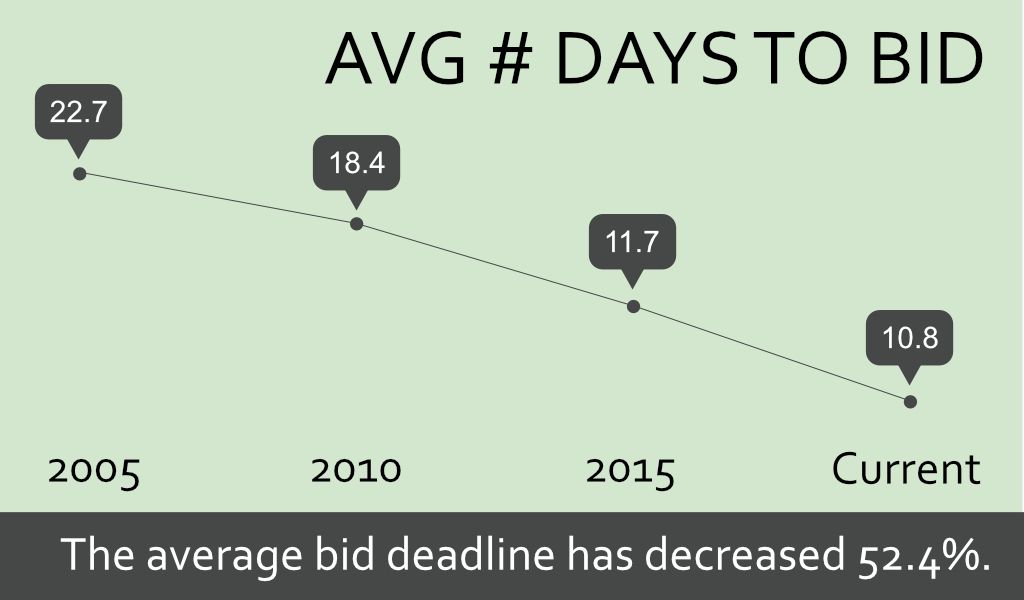Has your business experienced challenges in identifying new business opportunities from private sector and commercial sources? Many businesses have had success by targeting U.S. and Canadian public sectors.
Some of those opportunities came in the form of increased solicited purchases of a wide variety of goods, services, and solutions.
One other form of opportunity you may or may not know about is the set-asides that public-sector entities at all levels across North America—led by U.S. government agencies—have rolled out to offer certain qualified small-businesses extra support right now.
If you’d like to pursue some of that extra support, a good place to start is right here at BidPrime. We recently launched a special feature—available free of charge—to help you swiftly and efficiently find and pursue set-asides program bids/RFPs.
This new feature is called the BidPrime Set-Asides Hub. With it, you’ll be able to discover contracting opportunities offered exclusively to businesses owned by women, minorities, veterans, and other socio-economic designations.
[Read our press announcement about the Set-Asides Hub here]

See if you qualify for these set-asides programs
The U.S. federal government has identified quite a few types of small businesses it believes could benefit from special consideration.
Our list below mentions the main ones, but by no means all. For more information about whether your business might qualify for a set-asides program, contact your local office of the Small Business Administration.
● Service-Disabled Veteran-Owned Small Business
The feds want to award at least 3 percent of their annually budgeted contracting dollars to small businesses owned by military veterans disabled in the line of duty.
The qualifying requirements are that your small business must be at least 51-percent owned and controlled by one or more service-disabled veterans; also, there must be one or more such individuals making strategic decisions for the company and overseeing its daily operations.
● 8(a) Business Development Program
This is a set-asides program for small businesses owned by socially or economically disadvantaged people or entities. A minimum 5 percent of annual fed contracting dollars are intended to go toward this program.
You’re considered a viable 8(a) candidate if, among other things, you can show that you have a personal net worth of no more than $250,000, assets of $4 million or less, and an adjusted gross income that averages out over the last three years to be at or below a quarter-million dollars. You also have to offer some evidence to show that you’re reputable and able to deliver on your promises.
● HUBZone
Many localities historically bypassed by prosperity are federally designated as a HUBZone, which entitles businesses within them to qualify for special treatment and a 10-percent price-evaluation preference over competitors not from the zone. The feds aim to set aside at least 3 percent of their annual purchasing dollars for HUBZone contracts.
Among the qualifications for participation in this program are a requirement that your principal place of business be located in a HUBZone and that at least 35 percent of your employees live there.
● Indian Economic Enterprise
This program could be for you if your company is more than half-owned by at least one American Indian or tribal Alaskan.
However, the big issue you’ll face in attempting to qualify is whether the tribe, band, or nation with which you claim affiliation is one officially recognized by the federal government.
● Buy Indian Act
The U.S. Department of the Interior is instructed by this law to purchase goods, services, and solutions whenever possible from businesses owned-and-operated by American Indians. The law also requires the department (and its Bureau of Indian Affairs and Bureau of Indian Education units) to give preference to Indians to the extent practicable over other vendors.
One limiting factor of the department’s largesse in this program is that, from year to year, the secretary only has between $20 million and $60 million in available new spending money.
● Woman-Owned Small Business
At least 5 percent of all federal contracting dollars are supposed to be earmarked annually for small businesses where women hold the majority ownership and operational positions.
Notably, some of the contracting opportunities reserved for women-owned businesses are available only if there is also an economic disadvantage that can be claimed. That means each woman who is an owner can’t have net-worth exceeding $750,000, personal assets over $6 million, and three-year-averaged adjusted gross income beyond $350,000.
Veteran-owned small-business help from the SBA
For disabled and non-disabled veterans alike, the Small Business Administration offers a range of funding programs, training services, and federal contracting opportunities worth considering.
The centerpiece of SBA assistance to ex-military personnel now owning and operating small companies is the Office of Veterans Business Development (OVBD).
Enroll in this program for access to the capital and preparation you’ll need to pursue small-business opportunities that include federal procurement and commercial supply chains.
The OVBD can also help you qualify for special-consideration services, such as the Military Reservist Economic Injury Disaster Loan Program which provides borrowing of up to $2 million to cover operating costs you can’t meet after one or more of your essential employees is called back to active duty.
Opportunities aplenty
So, how many of these special designations does it appear that your business qualifies for? One? Two? More?
Whatever the number, the fact remains that it’s never been as crucial to consider the opportunities awaiting you in public-sector contracting.
And it’s never been as crucial to consider letting BidPrime help you find, pursue, and win as many of those opportunities as possible—especially given the trend toward narrower and narrower windows for submitting responses to bids/RFPs (see our recent report about the shrinking of response timeframes here).

You also should think about gearing up with BidPrime for the reason that solicitations these days are ultra-competitive (especially those involving set-asides). The surest way to get the edge is by relying on BidPrime to let you know of opportunities literally within seconds of their Announcement.
Try BidPrime for free and without obligation to see what a difference being the first to know can make in your quest for contracts.
For more information about BidPrime, call (888) 808-5356 or visit our website.


